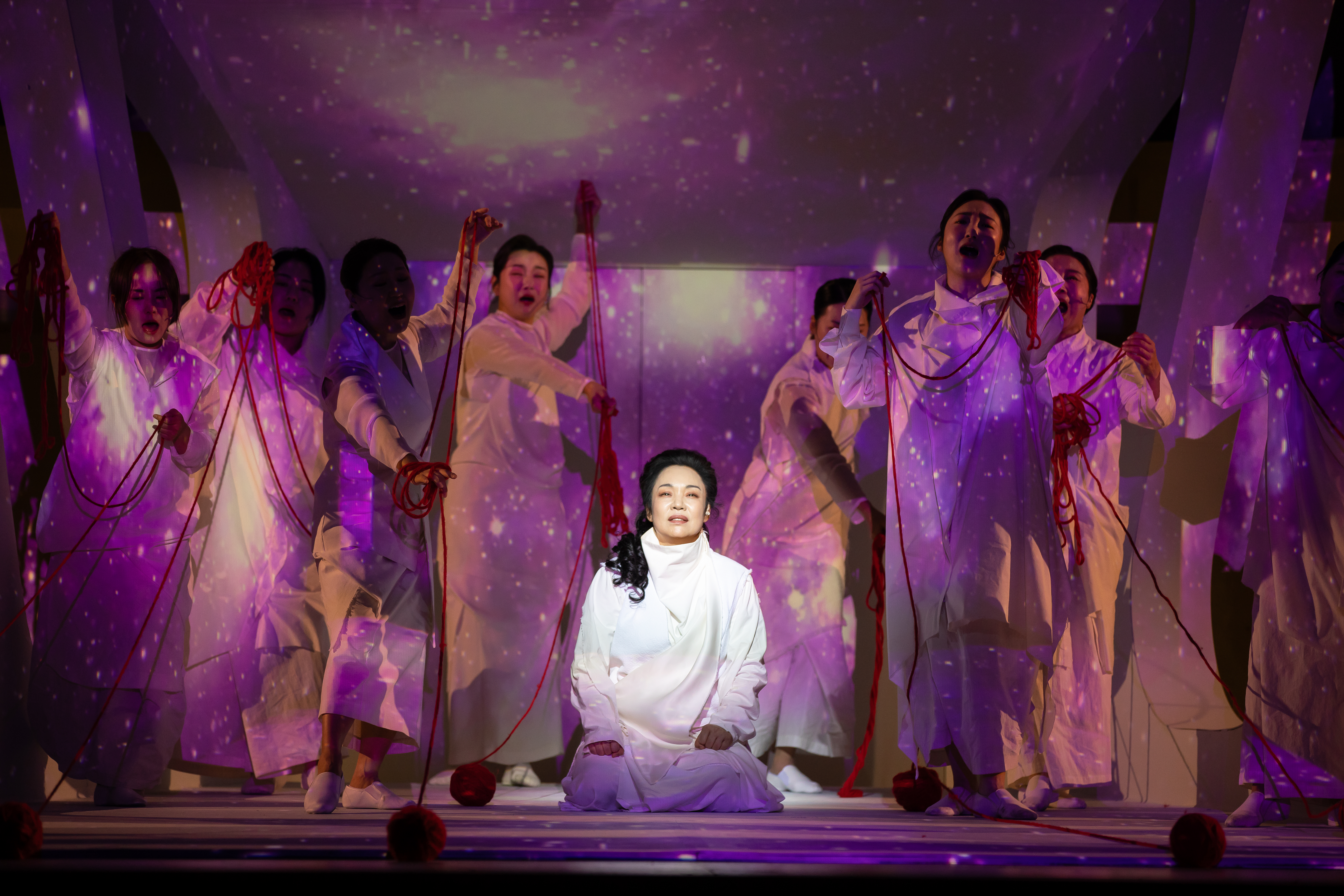Megan Amato reviews Trojan Women at the Edinburgh International Festival.
As someone who usually keeps the media consumed to happy – or at least bittersweet – endings, a retelling of Euripides’ epic tragedy may seem like an odd choice. However, I was immediately drawn to this women-forward production combining Korean pansori with a famous Greek tragedy.
Almost immediately, as the nearly full theatre was seated, nine actors robed in white listlessly walked like ghosts onto the stage. One of them, seemingly frail, collapsed in the centre front while the other eight slowly pulled on skeins of blood-red wool to the oblivious audience who buzzed pre show.
Threads of fate are common across many mythologies, including the Chinese Red Thread of Fate that ties one to their destined love, but the most depicted may be the Greek Three Fates and their thread that determined human fate and (or lack of) free will.
This detail strategically heightened the sense of place, centring the viewer in the tragedy about the fate of the forsaken Troy women, abandoned by the gods and destroyed by the ‘love’ between Paris and the infamous Helen of Troy.
A tragic fate is still a fate, after all.
The nearly two-hour performance did not let the audience off the hook, each bated breath drawn to the performers’ every movement as they heartfully wailed their sorrow; both the harmonised collective grief sung by the chorus that felt as if it echoed in every corner of the room and the guttural personal agony lamented by each woman that sat like hot stones at the bottom of our stomachs. Each woman’s emotional range to their fate was distinct and visceral – Queen Hecuba’s despair, Cassandra’s manic and channelled rage, and Andromache’s resigned and reproachful fury followed by despair.
One notable moment is when Helen, portrayed wonderfully and wantonly by male pansori singer Kim Jun-soo, walks out to be greeted by her husband with his fists soaked in the blood of his victims – and perhaps hers. The angry chorus of women condemning her for her sins was just as powerful as Helen bargaining and then lamenting her fate.
Everyone from the set and costume design did a noteworthy job and as always, I was impressed with the lighting and the use of shadows to portray emotion and status. The mix of modern instruments with the traditional Korean drum and gayageum was well thought out and exquisitely composed by award-winning composer Jung Jae-il and pansori master Ahn Sook-sun.
An absolutely raw and heartbreaking rendition of Euripides’ epic by Singaporean director and composer Ong Keng Sen that grips the heart and lungs with grief, rage and despair as you mourn for the victims of war and often desolate fate of the women and children left behind. That this is a mostly Korean production is especially harrowing as many Korean women were exploited as ‘comfort women’ by the Imperial Japanese Army during the second world war.
5 STARS
Read more news on Scottish Field’s news pages.
Plus, don’t miss the September issue of Scottish Field magazine.
TAGS


